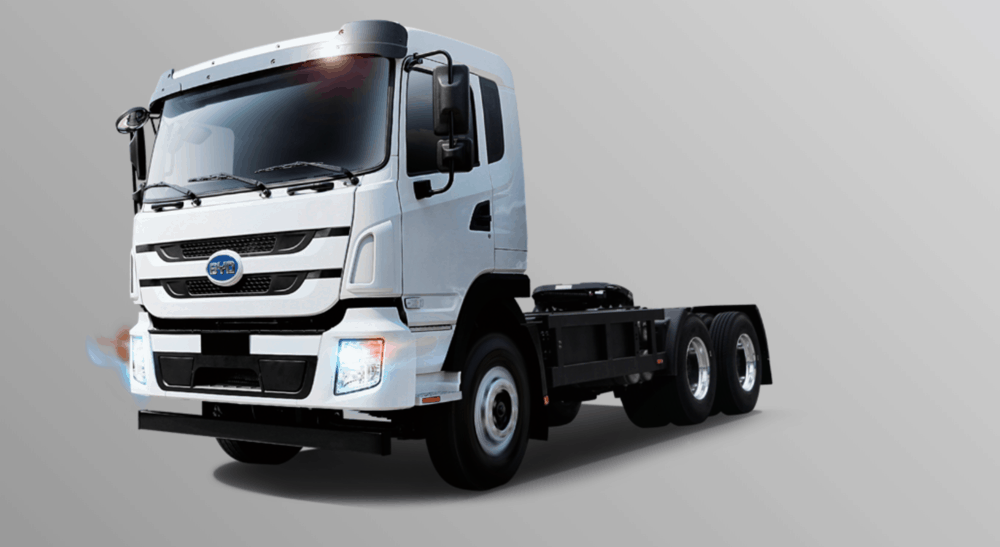
China, not Big 3, may represent biggest threat to Tesla
FreightWaves has covered a fair number of reasons to be skeptical of Tesla’s bloated valuation and CEO Elon Musk’s fantastical claims for his company’s performance: we wondered about the capabilities of the Semi in less than ideal road conditions; we watched Tesla burn billions of dollars as its bond underperformed; we pointed out the hidden environmental impacts of electric vehicles; finally, we considered whether surge pricing for electricity in peak times would affect the economics of Tesla’s trucks.
An additional challenge to Tesla’s business that we have not covered so far is competition—not from the USA’s Big 3 manufacturers, though Musk should definitely keep an eye on the Chevy Bolt, but from Chinese electric vehicle manufacturers looking to expand to the United States. In the 1970s, Japanese auto companies making reliable, efficient cars were in a perfect position to take advantage of fuel price shocks after the OPEC embargo of 1973, a time when Detroit was still in the muscle car era, focused on building ever-more-powerful engines. GM and Ford’s market share of U.S. car sales peaked in the late 1970s, but Toyota and Honda have been growing their shares ever since then.
Electric vehicle adoption may represent a similar opportunity for Chinese auto manufacturers. American companies whose profit margins depend on moving light trucks and SUVs may lose market share of car sales to Chinese companies who are already mass producing electric vehicles at a pace unheard of in North America. Chinese EV companies already possess the vertical integration—and battery manufacturing capacity above 10 gigawatt-hours—that Tesla is still pursuing. Other Chinese state-owned enterprises are trying to extend their control over global supplies of the metals required by electric vehicles, including lithium, copper, and cobalt.
On Monday at the North American International Auto Show in Detroit, GAC Motor President Yu Jun said that his company would be selling its electric cars in America by the fourth quarter of 2019. “I believe good products have no borders,” Yu said. “As long as our products have high quality, I believe U.S. consumers will recognize our products.” The state-owned GAC Motor, China’s fastest growing automaker, has set an ambitious goal to sell 1M cars annually by 2020, with 20% of those electric vehicles (that number for electrics is roughly equivalent to the total number of electric cars sold in the U.S. last year). The company has grown at an astonishing 85% CAR for the past six years.
BYD Auto, the best-selling Chinese carmaker backed by Warren Buffet (Berkshire Hathaway has a 9% stake), has recently completed a production facility in Lancaster, California, where heavy-duty vehicles—mostly electric buses—are being produced at a modest pace of 1,500 units per year. BYD sold electric fleet buses to the city of Denver, Colorado, and has major orders from Facebook and Stanford University. In addition to buses, where it’s seen the most success, BYD has brought the E6, an ‘electric taxi’, as well as Class 8, 6, and 5 electric trucks to the American market.
BAIC Group, which is also state-owned, has built cars in Veracruz, Mexico since last May, and has plans to export them to the United States and Canada beginning this year. BAIC is adding four new models to its Mexican production operations in 2018, including an electric vehicle with a range up to 200 km. The cars’ bodies and most of their components are being shipped from China to Veracruz via container ships transiting the Panama Canal, with the mechanical and external parts assembled in Mexico.
Meanwhile, SAIC Motor, another of the ‘Big 4’ state-owned Chinese automakers, which offers the Roewe ERX5, billed as “the world’s first electric Internet-connected SUV,” has put its plans to export electric vehicles to the United States on hold. The company plans to focus on expanding its European business first. SAIC Motor does build the Buick Envision in China through a partnership with GM, and that car is exported to the United States.
Stay up-to-date with the latest commentary and insights on FreightTech and the impact to the markets by subscribing.










